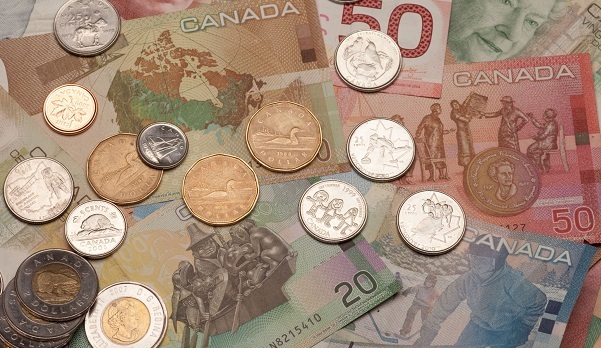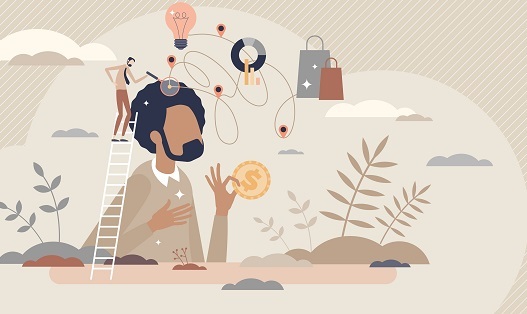
 Data Structure
Data Structure Networking
Networking RDBMS
RDBMS Operating System
Operating System Java
Java MS Excel
MS Excel iOS
iOS HTML
HTML CSS
CSS Android
Android Python
Python C Programming
C Programming C++
C++ C#
C# MongoDB
MongoDB MySQL
MySQL Javascript
Javascript PHP
PHP
- Selected Reading
- UPSC IAS Exams Notes
- Developer's Best Practices
- Questions and Answers
- Effective Resume Writing
- HR Interview Questions
- Computer Glossary
- Who is Who
Fed Hike
Introduction
Fed hike refers to the Federal Reserve's decision to increase interest rates, which can significantly affect the economy and financial markets. This tutorial overviews the Fed hike and its impact on inflation and financial products.
The Federal Reserve's decision to raise interest rates can significantly impact the economy, affecting everything from borrowing costs to consumer spending. Many individuals and businesses wonder how the recent announcement of a possible interest rate increase will affect their financial plans and objectives.
Define Fed Hike
An increase in the benchmark interest rate set by the Federal Reserve is referred to as a Fed hike. Simply put, it's the interest cost levied by one bank on the other for borrowing.

Fig 1: Fed Hike
Also known as Federal Funds Target Rate, this hike happens due to several factors like inflation, rise in consumer demand, surge in employment rates, etc.
As per the U.S employment rules, an economy with unemployment rate of less than 5% is deemed to be a fully employed country. Amid COVID, the consumer demand for health and hygiene has increased by many folds. Such cases led to take the call for Fed hike.
Overview of Fed Hike
The Federal Reserve raises interest rates to keep inflation in check and stabilise the economy. Excessive inflation can lose the fair value of money, make borrowing more expensive, and slow economic growth. Higher interest rates prevent unnecessary or extra spending, reducing the money supply in the economy.
The surge in Federal Funds Rate rises can lead to higher interest rates on loans and credit cards, resulting in driving up borrowing costs and slowing economic growth.
The Fed Hike is marshalled by a separate committee of 12 members. This group consists of 7 Federal Reserve System governors along with Chair and Vice-Chair of the board, Federal Reserve Board of New York President, and 4 Reserve Bank Presidents out of 11.
Fed Funds Rate Explained
The Fed Funds Rate is the rate at which banks and financial institutions lend money to each other to maintain required reserves overnight. The Federal Reserve sets the target range for the fed funds rate.
The Fed Funds Rate is an essential tool for the Fed to steer the economy. If the economy proliferates, the Federal Reserve can raise interest rates on Federal Funds, making it more expensive for banks to borrow money.
This makes it costlier for businesses and consumers to borrow money, slowing economic growth and keeping inflation in check. Conversely, if the economy slumps, the Fed can lower the Federal Funds rate, making it easier for banks to borrow money and boosting economic growth.
Impact of FOMC Hiking Rates on Inflation
The Federal Open Market Committee (FOMC) sets target ranges for Federal Funds Rates. They decide the interest rate range by keeping the PESTEL factors in mind, including inflation. So, here are four ways an FOMC rate hike could affect inflation.
Decrease in consumer spending ? Rising interest rates make it more expensive for consumers to borrow money. It could lead to lower consumer spending as people are less likely to borrow or use credit cards.

Fig 2: Trim consumer spending and improve your savings
Increased savings ? Higher interest rates can make it more attractive for people to save money because they can get a higher return on their savings. It could lead to higher savings rates, reducing the amount of money circulating in the economy and putting downward pressure on prices.
Less business investment ? Rising interest rates can make it more expensive for businesses to borrow money to invest in new projects or expand their operations. It could lead to lower business investment, slowing economic growth and reducing demand for goods and services.
Strong currency ? Higher interest rates can make a country's currency more attractive to foreign investors, giving them a higher return on investment. It may increase demand for the country's currency and its value compared to other currencies
Impact of Fed Hike on Financial Products
A rate hike by the Federal Reserve (Fed) could significantly impact financial instruments. Here are five ways a Fed hike could affect different financial instruments.
Mortgages ? A rate hike by the Federal Reserve could increase mortgage rates. It could make it more expensive for people to borrow money to buy a home, slowing the housing market.

Fig 3: Credit cards linked to fed hike rates
Credit cards ? Credit card interest rates are usually linked to Federal Funds' interest rates. If the Federal Reserve raises interest rates, credit card interest rates could rise, making it more expensive to maintain credit card balances.
Savings account ? A Fed hike by the Federal Reserve could increase interest rates on savings accounts. This can make it more attractive for people to save money and get higher returns on their savings.
Bonds ? Interest rate changes can have an impact on bonds' value. Rising interest rates can plunge the value of existing bonds as investors look elsewhere for higher yields.
Stocks ? A Fed hike could affect the stock market in several ways. Companies may have to pay more to borrow money, affecting profits and declining stock prices.
What if Fed Hike didn't happen?
If the Federal Reserve (Fed) decides not to raise interest rates as expected by market participants, it could have a range of implications for the economy and financial markets. On the one hand, investors may see this as a sign of concern for the economy's health, sending the stock market crashing.
On the other hand, the failure of the Fed to raise rates amid fears that inflation is temporary could lead to a rally in the stock market. Economically, without the Fed raising rates, borrowing costs for businesses and consumers will remain low, which could support the housing market and business investment.
Conclusion
A Fed hike by the Fed could significantly impact the economy and financial markets, especially inflation and financial instruments. While that helps keep inflation down, it also increases the cost of borrowing, affecting various financial products such as loans, mortgages, and savings accounts. That decision could have different implications depending on its rationale and how investors interpret it.
FAQs
Q1. How does the Federal Funds Rate affect the economy, and what does it mean?
Ans. The Fed Funds Rate is the interest rate banks charge reciprocally on overnight loans. It can affect the economy by affecting borrowing costs for businesses and consumers, investment, consumption and inflation.
Q2. How often does the Federal Reserve raise interest rates?
Ans. The frequency of migration may vary depending on economic conditions and prospects.
Q3. How will a Fed hike affect the stock market?
Ans. Fed hike can cause a temporary drop in the market. However, it can also indicate that the economy is doing well, leading to long-term stock market growth. Market segments may be affected differently as they are more susceptible to interest rates.

